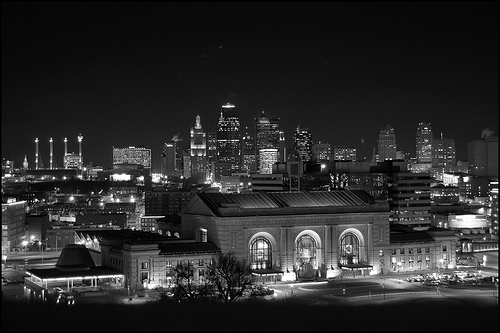HAIL TO THE CHIEF: PRESIDENT STONE'S FIRST INTERVIEW-
TALKS HUAC, CULTURE CLASH, AND LEGACY
John Friedman, The Kansas City Star
January 28th, 1981
Sat in the Library Room of the Presidential House, often referred to as Wallace House after President Henry A Wallace, it is easy to be drawn in by the trappings of power. Particularly when the newly sworn-in President comes striding in, making a bee line straight for you. But with a firm handshake and a warm glance, Charles Stone reminds you more of that popular acquaintance you were frequently charmed by at parties, but never quite got to know. After the niceties, which are, of course, very nice, the interview takes a more serious turn.
The President spoke first with me about his meetings earlier this week with his predecessors. Having expressed regret that due to their passing, he could not call on the advice of Presidents Wallace or Taylor, he nevertheless mentioned that despite his ailing health, President Reuther had given him some advice on “bipartisan politics”, and that although he has had his differences with President Cargo over the past few years and the campaign, “David”, as he calls him, has been a welcome source of advice. While this use of first names hinted to this interviewer at a warming of relations since the heatedness of the campaign, during which many an insult and slight was traded, Mr Stone remarks only that he feels “formalities are unnecessary” between men who’ve shared the Executive Office.
President Stone spoke with me regarding his defense policies - something he was criticised for in the latter stages of the electoral campaign for being too vague - and has announced that he has, since his election, been meeting with advisors to formulate policy. At the time of this interview, Stone pointed to his appointment of a Republican to the Department of Defense as indicative of one of those “areas of importance” that he feels the government ought to foster bi-partisan cooperation - however since then, a change in the internal situation with the Republican Party has led the President to leave the Secretary position empty thus far when passing on his appointments for Senate approval. It remains to be seen how the post will be filled.
The most important topic of discussion to arise in our interview was, of course, the proposal laid before the House Committee on Un-American Activities calling for an investigation into the President’s past - particularly his time spent as Chief of Staff to the Ambassador to France, and later as the Ambassador himself. The President remained unfazed by the prospect, in fact referring to Congressman Shinoda as a man he “respects a great deal”, and a vehement opponent of fascism, who seeks to root it out wherever it may be found “despite the risk to his own career”. When asked how well he knew his fellow Coloradan, Mr Stone stated that although they have met “on occasion”, they were hardly friends - merely fellow Progressives. The President further stressed that he doesn’t believe that Congressman Shinoda’s political future is under threat; instead he spoke on how he viewed “continued vigilance against fascism” positively. Stone appeared in high spirits nonetheless, thoroughly unconcerned by proceedings - when discussing for-the-record comments on his time in France, the President joked that he’d spent the time “serving the American people, eating peculiar food, and butchering the French language”. Nevertheless, this President is perhaps one of the most well-versed in foreign affairs, and having expressed interest in doing a great deal abroad in terms of working with allies during the campaign, many are expecting interesting things. In our discussions, he touched on hopes for South Africa after their 1976 “Soweto Revolution”, and his concerns for Haiti, which he insists he is “keeping a close eye on”, but only time will tell how this President will affect the global community.
Mr Stone remained unconcerned that Congressman Shinoda’s proposal was quickly reacted to by Committee Chairman, Congressman Ellis, whose motion to move the debate before the House of Representatives to form a special committee looks somewhat like impeachment proceedings. He commented that “it’s right that the highest office in the land be subject to such high scrutiny”. He nonetheless stated that “of course, if found guilty of any wrongdoing, I would step down” - and that he wasn’t concerned about the prospect of the Vice President succeeding him, as he believed that Vice President Roux-Johnson would also resign “to avoid the contamination of the Presidency” by having associated with fascism or fascist collaborators. He also expressed concerns about whether the Socialists would rightfully have a mandate to govern. Of course, were both the President and the Vice President to vacate office, the order of succession would lead the as-yet-unconfirmed Secretary of State to succeed to the Presidency. Nevertheless, he stressed that he did not think it would come to that, and that he “welcomes the investigation” as being a “good standard to set” - and that by investigating the Presidency, the highest office is in fact better protect, along with “American ideals”.
The spread of outside influence into the Mountain States is among this new President’s greatest concerns - not just political, as often seen by Pacific and United State posturing, but cultural spreads. The crisis of conscience for this generation, having moved on somewhat from the Japanese Wave of the 1960s, may well be Japanese video game arcades and “punk” music, both of which are springing up like weeds in our cities. Mr Stone’s thoughts regarding this expansion were largely …



